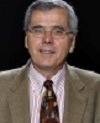Arthur C. Guyton Research Lecture
- Department of Physiology
- About Physiology and Biophysics
-
Education
- Melissa and Pete Shepherd, Jr., PhD. New Investigator Prize
- Physiology and Biophysics Educational Programs Home
- Graduate Program
- Undergraduate Research Experience
- Seminar and Lecture Series
- Seminar Series Archives
-
Research
- 2025 Publications
- Physiology and Biophysics Research Home
- Core Facilities
- Programs
- Graduate Program Research
- Publications
- Research Links
- Resources
D. Neil Granger, PhD
 Daniel Neil Granger is Boyd Professor and Head of the Department of Molecular and Cellular Physiology at Louisiana State University Health Sciences Center in Shreveport (LSUHSC-S). He was born in Abbeville, Louisiana and raised, along with his 10 siblings, in the nearby community of Erath. From 1969 to 1973, Granger attended the University of Southwestern Louisiana, earning the BS in microbiology. He then joined the graduate program in physiology and biophysics at the University of Mississippi Medical Center, earning an MS degree in 1975 and a PhD degree in 1977. His thesis and dissertation research projects focused on the intestinal microcirculation, and were performed under the mentorship of Dr. Aubrey Taylor. In 1977, he assumed a faculty position as Assistant Professor in the Department of Physiology at the University of South Alabama and achieved the rank of Professor in 1983. In 1986, Granger was recruited to his current position as department head at LSUHSC-S, where he has also served at the Associate Dean for Research from 1993-2001. Since 2003, he has served as Chair of the Board of Directors of the Center for Cardiovascular Diseases and Sciences at LSUHSC-S.
Daniel Neil Granger is Boyd Professor and Head of the Department of Molecular and Cellular Physiology at Louisiana State University Health Sciences Center in Shreveport (LSUHSC-S). He was born in Abbeville, Louisiana and raised, along with his 10 siblings, in the nearby community of Erath. From 1969 to 1973, Granger attended the University of Southwestern Louisiana, earning the BS in microbiology. He then joined the graduate program in physiology and biophysics at the University of Mississippi Medical Center, earning an MS degree in 1975 and a PhD degree in 1977. His thesis and dissertation research projects focused on the intestinal microcirculation, and were performed under the mentorship of Dr. Aubrey Taylor. In 1977, he assumed a faculty position as Assistant Professor in the Department of Physiology at the University of South Alabama and achieved the rank of Professor in 1983. In 1986, Granger was recruited to his current position as department head at LSUHSC-S, where he has also served at the Associate Dean for Research from 1993-2001. Since 2003, he has served as Chair of the Board of Directors of the Center for Cardiovascular Diseases and Sciences at LSUHSC-S.
Dr. Granger's research efforts have focused on the microcirculation and its function in health and disease. His early work was directed towards defining the contribution of the blood and lymph microcirculations to nutrient and water absorption in the small intestine. His interest in the regulation of microvascular permeability led to the discovery that ischemia followed by reperfusion results in microvascular dysfunction, acute inflammation, and tissue injury that is elicited by reactive oxygen species derived from xanthine oxidase. His subsequent work has largely focused on defining the chemical and molecular basis for the involvement of oxidative stress, immune cells, and platelets in reperfusion injury, and how risk factors for cardiovascular disease lead to an exaggerated injury response to ischemia and reperfusion.
Granger is an author of over 600 articles in peer-review journals, over 100 book chapters and the author/editor of 6 books. He serves on the editorial boards of the Heart & Circulation, GI & Liver, and Cell sections of the American Journal of Physiology, as well as Experimental & Translational Stroke Medicine, and Microcirculation. He has served on the editorial boards of Circulation Research, Shock, Pathophysiology, Free Radical Biology & Medicine, Lymphatic Research and Biology, Nitric Oxide Biology, Gastroenterology, Digestive Diseases & Sciences, Journal of Critical Care, Microvascular Research, and News in Physiological Sciences. Granger served as associate editor of the American Journal of Physiology: GI & Liver (1985-91), editor-in-chief of Microcirculation (1999-2003), and regional editor for the Americas of Pathophysiology (2000-07). He was a member of the Clinical Sciences-2 (1983-86), Cardiovascular & Renal (1987-91), General Medicine-A2 (1992-96) and Gastrointestinal Mucosal Pathobiology Study Sections of the National Institutes of Health. He also served on several peer review panels and policy committees for the American Heart Association, the Research Committee of the American Gastroenterological Association, and the Physiology Test Committee of the National Board of Medical Examiners (1988-1991). Granger served on the Council of the Microcirculatory Society (1982-85) and as its president in 1991-92. He was elected to the Council of the American Physiological Society (APS, 1993-96) and served as its 77th president in 2004-05.
He served on the Council of the Association of Chairs of Departments of Physiology (ACDP), and on the Board of Directors of the Federation of American Societies of Experimental Biology (FASEB). Granger has received several awards and honors for his research, including the APS Bowditch Award, the Distinguished Research Award from the GI Section of the APS, the Landis Award from the Microcirculatory Society, the Laerdal Award from the Society for Critical Care Medicine, the McKenna Memorial Award from the Canadian Association of Gastroenterology, the Dolph Adams Award from the Society for Leukocyte Biology, the Career of Distinction Award from the Oxygen Society, the Nishimaru-Tsuchiya International Award from the Japanese Society for Microcirculation, the Robert Berne Lecture & Award from the Cardiovascular Section of the APS, British Microcirculatory Society Basic Science Award & Lecture, and the Mark Allam Lecture & Award from the American College of Veterinary Surgeons. He was also designated as a Highly Cited Investigator (top 1 % of cited scientists) by the Institute for Scientific Information.


